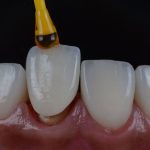Why Do Your Teeth Hurt After a Cleaning? Exploring the Common Causes and Solutions
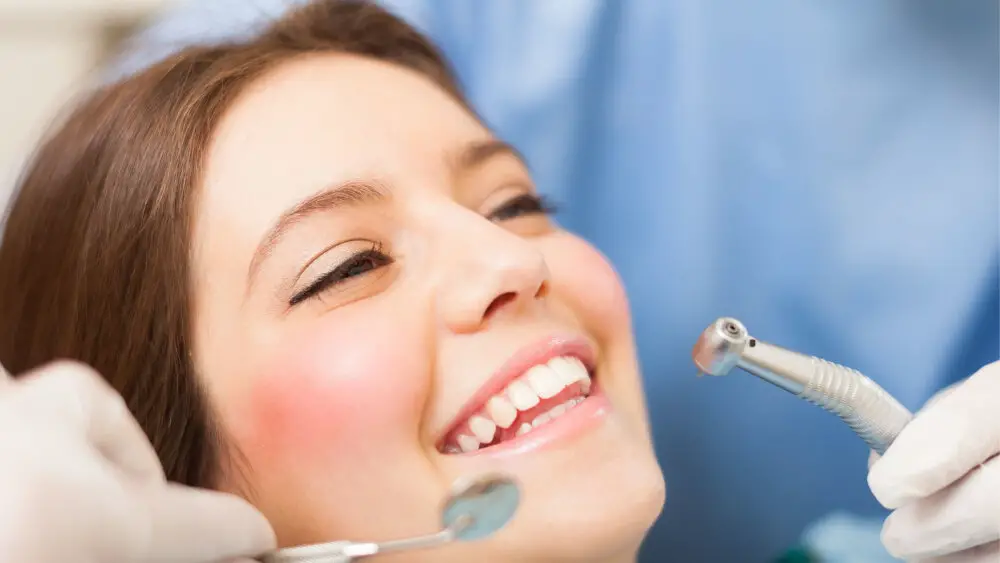
When you leave the dentist’s office after a routine cleaning, you may feel a sense of relief that your teeth are now sparkling clean. But as the hours pass, you may begin to feel a nagging pain or discomfort in your teeth. You may even find it difficult to eat or drink without experiencing sharp pain. This experience is not uncommon, and it can be frustrating to deal with. Understanding the causes of this pain is essential to taking the necessary steps to alleviate it. In this article, we will explore the reasons why your teeth may hurt after a cleaning and provide some solutions to help you manage the discomfort. The first cause of this pain is the removal of plaque and tartar buildup. This is the primary reason why we go for dental cleanings in the first place. However, when the buildup is significant, the cleaning process can be quite intense, and the pressure applied can cause some trauma to the teeth and gums. This can cause sensitivity and swelling, leading to pain and discomfort. Additionally, if the cleaning process involves the use of a water jet, the force of the water can cause some damage to the teeth, leading to pain. Understanding the causes of this pain is essential to taking the necessary steps to alleviate it. In the next section, we will discuss some solutions to help you manage the discomfort and get back to your day-to-day activities.
Dental cleanings, also called prophylaxis, are a critical aspect of maintaining good oral health. During a cleaning, a dental hygienist removes plaque and tartar buildup from the teeth and gums using special tools. They also polish the teeth to remove surface stains and give them a smooth, shiny finish. In addition to removing harmful bacteria and preventing tooth decay, regular cleanings can help prevent gum disease and keep your breath fresh. Despite the benefits, some people may experience discomfort during or after a cleaning due to sensitivity or underlying dental issues. It’s essential to communicate any concerns with your dentist or hygienist to ensure a comfortable and effective cleaning experience.
Maintaining good oral hygiene is essential for overall health and well-being. Poor oral health can lead to a variety of dental problems, including tooth decay, gum disease, and bad breath. Brushing and flossing regularly, along with routine dental cleanings, can help prevent these issues. Additionally, practicing good oral hygiene can have a positive impact on other areas of the body, such as the heart and lungs. Neglecting oral hygiene can result in painful dental procedures and costly treatments. It’s important to make oral hygiene a priority to ensure a healthy and happy smile.
Tooth Sensitivity
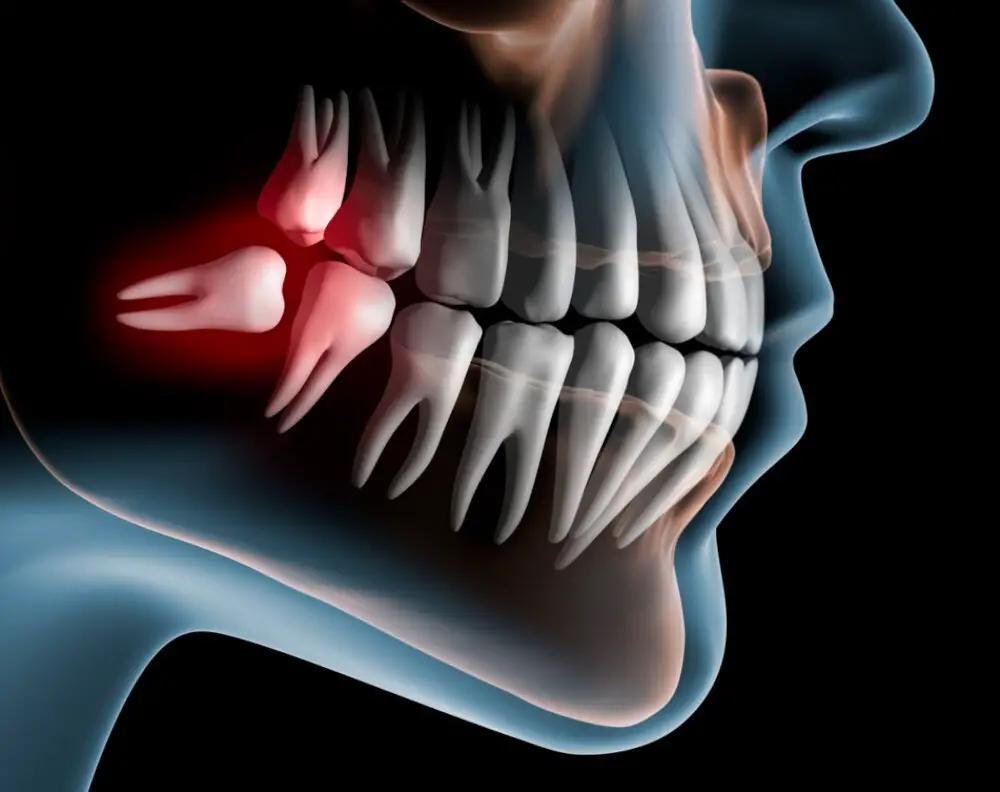
Tooth sensitivity is a common dental issue that affects millions of people around the world. This condition occurs when the tooth enamel wears down, exposing the dentin layer underneath. The dentin layer contains microscopic tubes that lead to the tooth’s nerve endings, making it sensitive to hot or cold temperatures, acidic foods, and sweets. Tooth sensitivity can be quite uncomfortable, causing sharp pain and discomfort when eating or drinking certain things. In some cases, tooth sensitivity can be a symptom of a more significant dental issue, such as tooth decay or gum disease. Tooth sensitivity can be caused by a variety of factors, including aggressive brushing, gum disease, tooth decay, and teeth grinding. It can also be a side effect of certain dental procedures, such as teeth whitening or a deep cleaning. Fortunately, there are several ways to manage tooth sensitivity, including using desensitizing toothpaste, avoiding acidic foods and drinks, and practicing good oral hygiene habits. In some cases, your dentist may recommend a fluoride treatment or dental bonding to help protect your teeth and reduce sensitivity. If you are experiencing tooth sensitivity, it is essential to speak with your dentist to determine the cause and develop an appropriate treatment plan.
Tooth sensitivity occurs when the protective layer of the tooth, known as enamel, becomes worn down, exposing the underlying dentin and nerve endings. This can be caused by a variety of factors, including brushing too hard, gum disease, tooth decay, and aging. When the dentin and nerve endings are exposed, hot, cold, sweet, or acidic foods and drinks can cause pain or discomfort. Additionally, dental procedures such as cleanings, fillings, and crowns can also cause temporary sensitivity. Fortunately, there are several solutions to help manage tooth sensitivity, including using desensitizing toothpaste, avoiding acidic foods and drinks, practicing good oral hygiene, and visiting a dentist regularly for check-ups and cleanings.
Tooth sensitivity after cleaning is a common issue that many people face. The causes of this sensitivity can vary from person to person, but some of the most common factors include gum recession, enamel erosion, and exposed dentin. When the gums recede, the sensitive roots of the teeth become exposed, leading to discomfort and pain. Similarly, when enamel is worn down, the underlying dentin can be exposed, which can also cause sensitivity. In some cases, the cleaning process itself can exacerbate existing issues, especially if there is already significant damage to the teeth or gums. While there is no one-size-fits-all solution to tooth sensitivity after cleaning, there are several steps that can be taken to minimize discomfort and protect the teeth from further damage.
Tooth sensitivity is a common problem faced by many individuals after a dental cleaning procedure. It can be caused due to various reasons like enamel erosion, gum recession, or tooth decay. However, there are several solutions available to tackle this issue. One solution is to use desensitizing toothpaste that contains potassium nitrate or fluoride to reduce sensitivity. Another option is to use a mouthwash that contains fluoride to strengthen the teeth and reduce sensitivity. Additionally, avoiding acidic and sugary foods, practicing good oral hygiene, and using a soft-bristled toothbrush can also help prevent tooth sensitivity. In severe cases, a dentist may recommend treatments like a dental crown or filling to protect the affected tooth.
Gum Inflammation
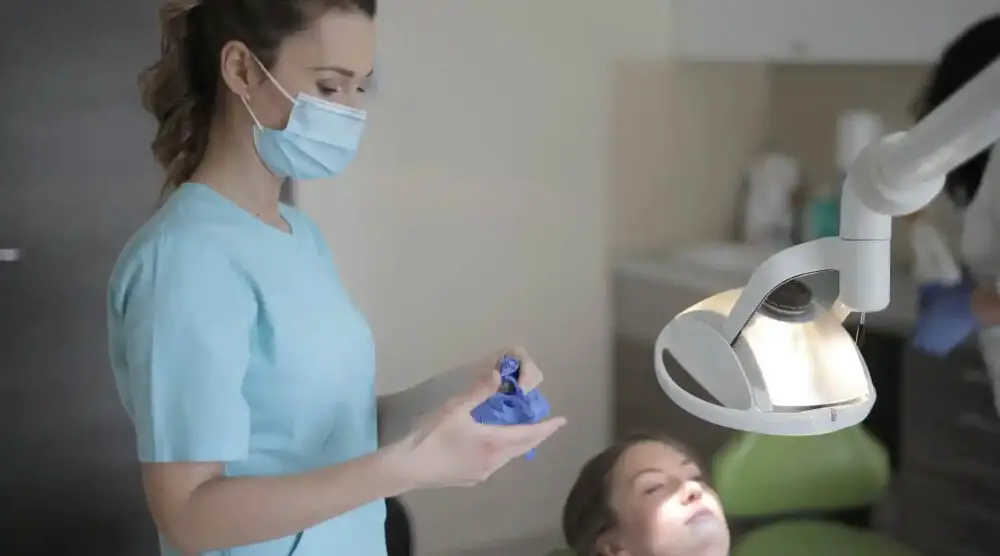
Gum inflammation, also known as gingivitis, is a common dental problem that affects millions of people worldwide. It occurs when the gums become swollen, red, and painful due to the buildup of plaque and bacteria on the teeth. This condition is usually caused by poor oral hygiene habits, such as not brushing and flossing regularly or not visiting the dentist for regular cleanings. If left untreated, gum inflammation can progress to periodontitis, a more serious form of gum disease that can cause tooth loss and other health problems. The good news is that gum inflammation is easily preventable and treatable. Maintaining good oral hygiene habits, such as brushing twice a day, flossing daily, and using an antiseptic mouthwash, can help remove plaque and bacteria from the teeth and gums. Regular dental cleanings and checkups are also important to ensure that any signs of gum inflammation are caught and treated early. In more severe cases, your dentist may recommend scaling and root planing, a deep cleaning procedure that removes plaque and tartar from under the gumline. With proper care and treatment, you can keep your gums healthy and prevent gum inflammation from causing discomfort and damage to your teeth.
Gum inflammation is a common dental problem that occurs when the soft tissues surrounding the teeth become swollen, red, and tender. This condition, also known as gingivitis, is caused by the buildup of plaque and bacteria on the teeth and gums. Poor oral hygiene, such as not brushing and flossing regularly, can lead to the accumulation of plaque, which can irritate and inflame the gums. Other factors that can contribute to gum inflammation include smoking, hormonal changes, certain medications, and medical conditions such as diabetes. If left untreated, gum inflammation can progress to periodontitis, a more severe form of gum disease that can cause tooth loss and other serious health problems. Treatment for gum inflammation typically involves improving oral hygiene habits, professional dental cleanings, and in some cases, prescription medications.
Gum inflammation after cleaning is a common issue that people face. One of the primary causes of this problem is the use of harsh dental cleaning tools or techniques. Aggressive scraping and brushing can cause the gums to become inflamed and sore. Another factor that may contribute to gum inflammation after cleaning is the presence of gum disease. This condition is characterized by the build-up of plaque and bacteria on the teeth and gums, which can cause the gums to become red, swollen, and painful. In some cases, people may experience gum inflammation after cleaning due to an allergic reaction to the cleaning products used by their dentist. Whatever the cause, it is essential to seek prompt treatment to prevent further damage to the gums and teeth.
Gum inflammation is a common issue that can cause discomfort and pain. The good news is that there are several solutions available to alleviate the symptoms. One of the most effective ways to prevent gum inflammation is through regular dental cleanings and proper oral hygiene practices such as brushing twice a day and flossing daily. In addition, using an antibacterial mouthwash can help kill bacteria that cause inflammation. If gum inflammation persists, a dentist may recommend a deep cleaning procedure to remove plaque and tartar buildup. In severe cases, antibiotics may be prescribed. It is important to address gum inflammation promptly to prevent further damage and potential tooth loss.
Tooth Decay
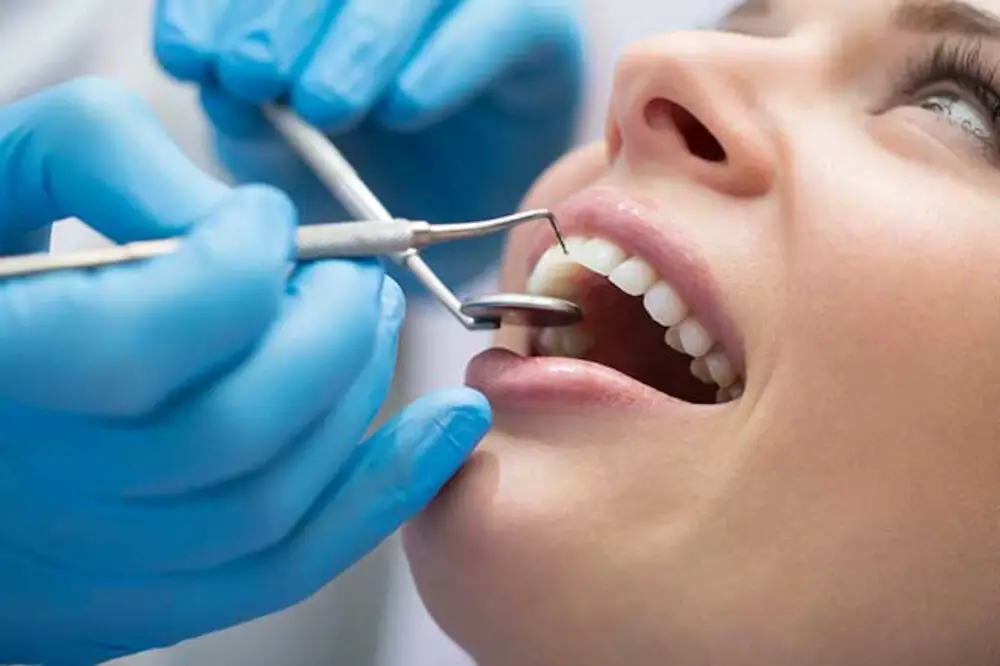
Tooth decay is a common dental problem that arises from the buildup of plaque and bacteria on the teeth. This can lead to the formation of cavities, which are small holes in the teeth that can cause pain and sensitivity. Tooth decay can be caused by a variety of factors, including poor oral hygiene, a diet high in sugar and carbohydrates, and certain medical conditions. It is important to address tooth decay early on, as it can lead to more serious dental issues, such as gum disease and tooth loss. To prevent tooth decay, it is important to brush and floss regularly, limit sugary and acidic foods and drinks, and visit the dentist for regular cleanings and checkups. One of the most effective ways to prevent tooth decay is through proper dental hygiene. This includes brushing your teeth twice a day with fluoride toothpaste, flossing daily, and using mouthwash to kill bacteria and freshen your breath. It is also important to maintain a healthy diet that is low in sugar and processed foods. Regular visits to the dentist for cleanings and checkups can also help prevent tooth decay, as the dentist can remove any plaque buildup and identify any potential issues before they become serious. By taking care of your teeth and gums, you can prevent tooth decay and maintain good oral health for years to come.
Tooth decay, also known as dental caries, is a common dental problem that occurs when bacteria in the mouth produce acid that erodes the tooth enamel. This acid is formed when bacteria feed on the sugar and carbohydrates left in the mouth after eating. Over time, the acid breaks down the enamel, causing tiny holes or cavities to form in the teeth. If left untreated, these cavities can grow larger and deeper, eventually reaching the inner layers of the tooth and causing pain and sensitivity. Good oral hygiene practices, such as brushing twice a day and regular dental check-ups, can help prevent tooth decay.
Tooth decay can occur after cleaning due to a variety of reasons. One common cause is poor oral hygiene habits, such as not brushing and flossing regularly. Another cause can be an unhealthy diet high in sugar and carbohydrates, which can feed the harmful bacteria in the mouth and lead to decay. Additionally, certain medical conditions and medications may contribute to dry mouth, which can increase the risk of decay. Finally, inadequate cleaning during a dental appointment, such as missing certain areas or not using the right tools, can also leave the teeth vulnerable to decay. It is important to address these underlying causes and practice good oral hygiene habits to prevent tooth decay and maintain good oral health.
Tooth decay is a common dental issue that can cause pain and discomfort. Fortunately, there are several solutions available to prevent and treat tooth decay. The first step is to practice good oral hygiene, including brushing and flossing regularly and using fluoride toothpaste. Additionally, a healthy diet low in sugar and high in calcium can help strengthen teeth and prevent decay. For those with more severe decay, a dental filling or crown may be necessary to restore the tooth’s function and appearance. In some cases, root canal therapy may be required to remove infected or damaged tissue. Ultimately, maintaining good dental habits and seeking professional treatment when necessary can help prevent and treat tooth decay.
Improper Dental Cleaning Techniques
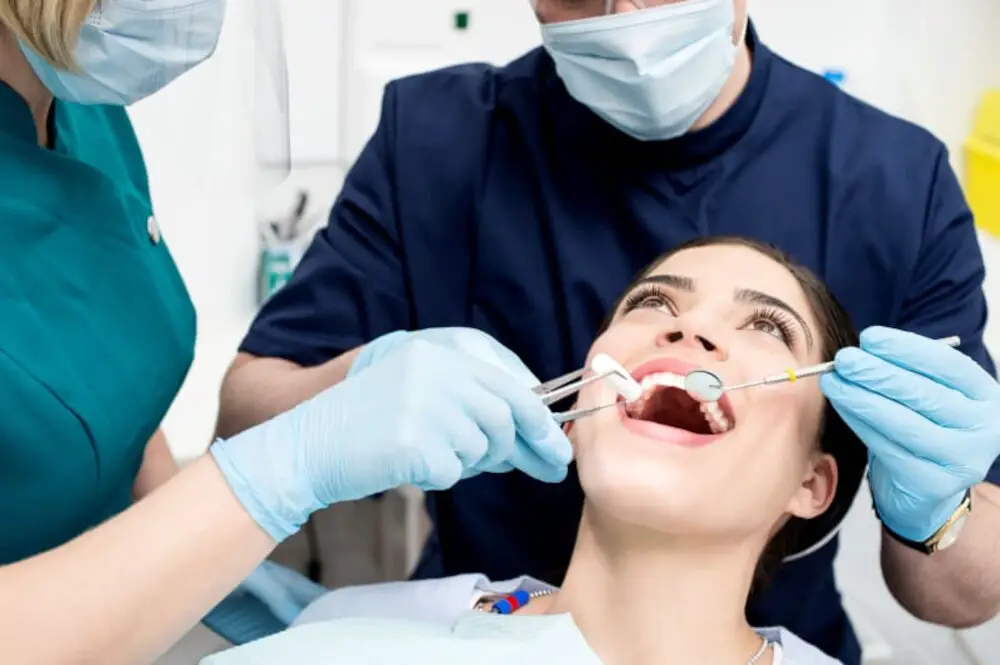
Improper dental cleaning techniques can lead to a multitude of problems, from sensitivity to pain and even gum disease. One of the most common mistakes people make is brushing too hard or using a toothbrush with hard bristles. This can cause damage to the enamel on your teeth, leading to sensitivity and pain. Instead, it is recommended to use a soft-bristled toothbrush and brush gently in circular motions, focusing on each tooth individually. This will help to remove plaque and bacteria without causing harm to your teeth. Another mistake people make is neglecting to floss regularly. Flossing is crucial in removing food particles and bacteria from between your teeth, which can lead to tooth decay and gum disease. It is recommended to floss at least once a day, using a gentle back-and-forth motion. Improper flossing techniques, such as snapping the floss between your teeth or forcing it too hard, can also cause damage to your teeth and gums. By taking the time to properly clean your teeth, you can avoid pain and discomfort, and maintain a healthy smile for years to come.
Proper dental cleaning techniques are essential to maintain healthy teeth and gums. The first step is to brush your teeth twice a day with fluoride toothpaste and a soft-bristled brush. Make sure to brush all surfaces of your teeth, including the front, back, and chewing surfaces. Also, don’t forget to brush your tongue to remove bacteria and freshen your breath. Flossing is equally important, as it removes plaque and food particles that a toothbrush cannot reach. Gently insert the floss between your teeth and move it back and forth, taking care not to snap it against your gums. Using mouthwash can also help to kill bacteria and freshen your breath. Lastly, be sure to visit your dentist regularly for professional cleanings and checkups. By following these simple steps, you can maintain a healthy smile and prevent tooth pain after a cleaning.
Improper dental cleaning can be caused by a variety of factors. One of the most common causes is inadequate brushing and flossing, which can lead to the buildup of plaque and tartar. Other factors that can contribute to improper dental cleaning include using a toothbrush with bristles that are too hard or old, not replacing toothbrushes often enough, and not brushing for long enough periods of time. In addition, using the wrong type of toothpaste or mouthwash can also contribute to poor dental hygiene. Finally, poor diet and lifestyle habits, such as smoking and consuming excessive amounts of sugary or acidic foods and drinks, can also negatively impact dental health and contribute to improper cleaning. It is important to address these factors in order to maintain good oral health and prevent tooth pain and discomfort.
Improper dental cleaning can lead to various oral health problems, including tooth sensitivity. The solution to this problem is to adopt better dental hygiene practices. It is essential to brush your teeth regularly, at least twice a day, and use floss to remove food particles stuck between your teeth. Additionally, using mouthwash can help to kill bacteria and freshen breath. It is also crucial to visit your dentist regularly for professional cleaning and to identify any underlying dental issues. Your dentist can recommend suitable toothpaste and mouthwash to address your specific oral health needs. By practicing good dental hygiene and seeking professional dental care, you can avoid tooth sensitivity and other oral health problems.
Teeth pain after cleaning is a common issue that can arise due to various reasons. One of the most common causes is the removal of tartar and plaque buildup from the teeth. This can cause sensitivity and even mild pain, which usually subsides in a few days. Another cause can be the use of improper cleaning techniques or tools, which can irritate the gums and cause discomfort. In some cases, underlying dental issues such as gum disease or cavities can also cause teeth pain after cleaning. The solutions for this issue include proper oral hygiene practices, using a soft-bristled toothbrush, and avoiding abrasive toothpaste. It is also recommended to visit a dentist regularly to detect and treat any underlying dental problems before they worsen.
Communicating with your dentist is crucial in maintaining good oral health. When you visit your dentist for a cleaning, it’s essential to let them know if you are experiencing any pain or discomfort during the procedure. This will help the dentist identify any potential issues and adjust their approach to make the experience as comfortable as possible. Additionally, if you are experiencing any pain or sensitivity after the cleaning, it’s important to communicate this to your dentist as soon as possible. This will allow them to diagnose the problem and provide the necessary treatment to alleviate your discomfort. Regular communication with your dentist is key to preventing and treating oral health issues, so don’t hesitate to speak up and express any concerns or questions you may have.
Maintaining good oral hygiene not only ensures healthy teeth and gums but also contributes to overall well-being. Regular brushing and flossing are essential for removing plaque and preventing tooth decay and gum disease. It is recommended to brush twice a day for at least two minutes using fluoride toothpaste and a soft-bristled brush. Flossing should be done at least once a day to remove debris and bacteria between teeth and along the gum line. Using mouthwash can also help to kill bacteria and freshen breath. Additionally, it is important to limit sugary and acidic foods and drinks and to visit the dentist regularly for check-ups and cleanings. By following these reminders, you can maintain good oral hygiene and avoid tooth pain and discomfort.
Conclusion
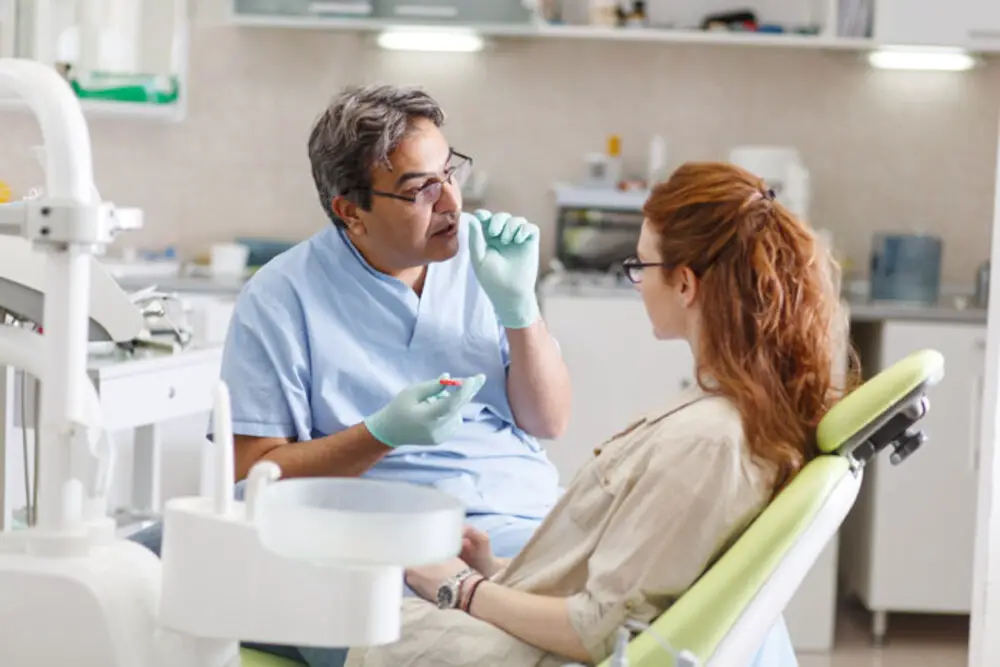
In conclusion, tooth sensitivity or pain after a dental cleaning is a common occurrence. The possible causes range from the use of sharp dental instruments, gum inflammation, and underlying dental conditions. However, with proper dental hygiene and regular dental checkups, these issues can be prevented or treated. It is crucial to communicate any discomfort or pain to the dentist during cleaning to ensure a comfortable and effective cleaning experience. Remember, dental health is an essential aspect of overall health and well-being, and taking care of your teeth is crucial to maintain a healthy smile.




